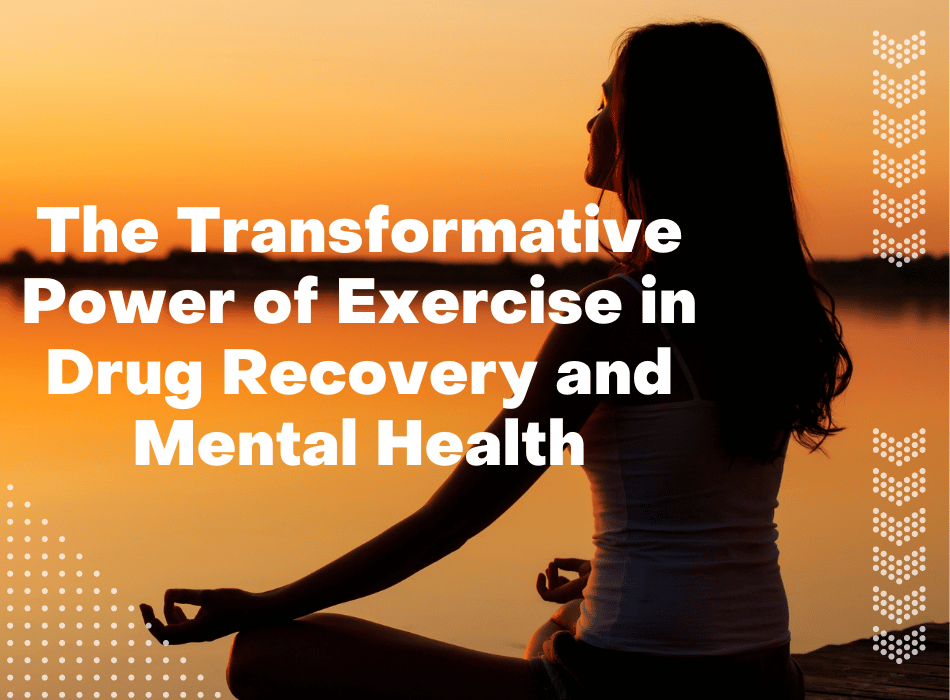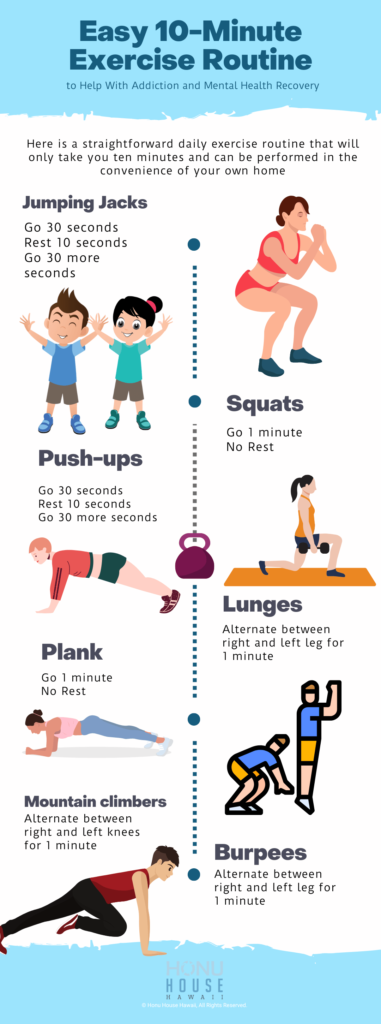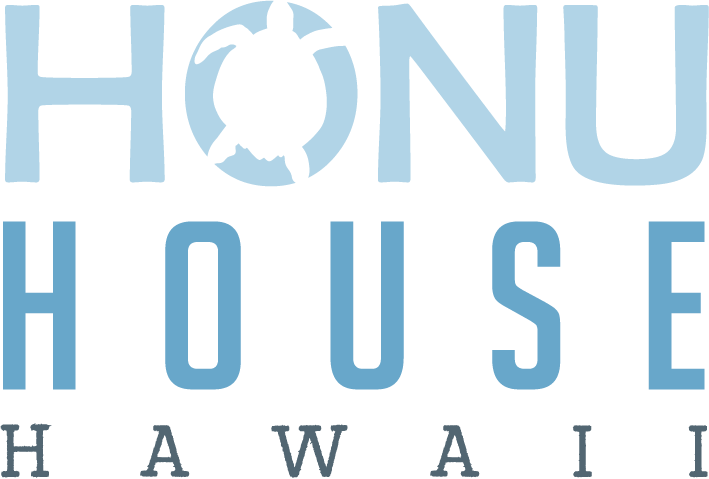
The Transformative Power of Exercise in Drug Recovery and Mental Health
-
By John Burke
-
March 21, 2023
Drug addiction and mental health issues can be debilitating, affecting an individual’s physical and mental well-being, and making it challenging to live a fulfilling life. These challenges can arise from various factors, such as genetics, environment, and life experiences. However, it is essential to understand that there are various treatment options available, and exercise has proven to be an effective form of therapy for promoting recovery and improving mental health.
An exercise is a powerful tool that can help individuals cope with the effects of drug addiction and mental health issues. It provides a natural way to stimulate the production of endorphins, which can reduce pain and enhance feelings of pleasure and well-being. Additionally, exercise can help reduce cravings and withdrawal symptoms during addiction recovery.
For mental health, exercise has been shown to improve symptoms of anxiety and depression. It provides a healthy outlet for stress and emotions, improves self-esteem and body image, and provides a sense of purpose and accomplishment. Exercise also enhances cognitive function and creativity, improving overall mental clarity and focus.
Adding exercise to your daily routine doesn’t have to be complicated or time-consuming. Starting with a short daily exercise routine can provide significant benefits for addiction recovery and mental health. Simple activities like walking, jogging, yoga, or swimming can provide an excellent starting point. As you progress, gradually increase the intensity and duration of your exercise routine.
While adding exercise to your routine, it’s essential to find activities that you enjoy and fit your lifestyle. By setting achievable goals and tracking your progress, you can stay motivated and see the positive impact of exercise on your overall health and well-being. It’s also crucial to seek support and accountability through a workout buddy, fitness community or a therapist well-versed in using exercise in therapy.

The Benefits of Exercise in Drug Recovery
Drug addiction is a complex behaviour that affects the brain and leads to compulsive drug-seeking behaviour. Exercise can be quite useful in addiction treatment by reducing cravings and withdrawal symptoms for those suffering from substance abuse. Reduces cravings and withdrawal symptoms: Exercise has been shown to reduce cravings and withdrawal symptoms during addiction recovery.
Endorphins are neurotransmitters that are released into the body in response to physical activity. These endorphins have been shown to alleviate pain as well as increase feelings of pleasure and well-being.
This has the effect of reducing the intensity of both the cravings and the withdrawal symptoms. Endorphins are able to help counteract the effects of stress and anxiety, which are common precipitants of drug use. Endorphins can also help reduce cravings for drugs.
In addition to reducing cravings, exercise can also improve mood and reduce symptoms of anxiety and depression. Exercise stimulates the release of neurotransmitters such as serotonin, which plays a role in regulating mood. It also increases the production of brain-derived neurotrophic factor (BDNF), which is a protein that promotes the growth and survival of neurons. This can help to improve cognitive function and reduce the risk of relapse.
Regular exercise works to enhance self-esteem and confidence: Addiction can take a toll on an individual’s self-esteem and confidence. Regular exercise can help enhance self-esteem and confidence by improving overall physical health, increasing energy levels, and providing a sense of accomplishment.
The Benefits of Exercise in Mental Health
Exercise has been shown to be an effective therapy for improving mental health and as a part of treating mental illness. It can reduce symptoms of anxiety and depression by stimulating the production of neurotransmitters such as serotonin and dopamine. Exercise also improves self-esteem and body image by promoting weight loss and toning muscles.
When paired with effective therapy, exercise enhances cognitive function and creativity by increasing blood flow to the brain. This can improve memory, focus, energy levels and concentration. This works wonders with depression, anxiety and mood instability. It can also promote the growth of new brain cells, which can help to prevent cognitive decline.
Regular exercise also improves overall physical health, which can, in turn, produce mental health benefits. It can reduce the risk of chronic diseases such as diabetes, heart disease, and obesity. Physical activity also promotes the production of hormones such as testosterone and estrogen, which can improve libido and sexual function. The health benefits alone result in an increased quality of life and better mental health.
Exercise also provides a healthy, productive outlet for stress and emotions. It can help individuals to cope with stress and anxiety in a healthy way when used in conjunction with therapy-driven treatment programs.
Exercise provides a sense of purpose and accomplishment. It gives individuals a goal to work towards and a sense of achievement when they reach their goals. This can improve self-esteem and confidence, which are important factors in mental health.
Tips for Incorporating Exercise into Your Routine During Recovery
Adding exercise to your routine can be challenging, but it is important for promoting recovery and improving mental health. Here are some practical tips for getting started:
Start slow and gradually increase intensity and duration. This will help to prevent injury and burnout. Injuries can be negative for both mental health and addiction recovery.
Choose activities that you enjoy and that fit your lifestyle. If you don’t like running, try swimming or cycling instead. If you have a busy schedule, try to find activities that you can do in short bursts throughout the day.
Set achievable goals and track your progress. This will help to keep you motivated and focused. While you keep track of your progress, do not forget to keep working on your recovery plan with your therapist.
Find support and accountability through a workout buddy or fitness community. This can help to keep you accountable and provide motivation when you need it.
Easy 10-minute exercise routine to help with addiction and mental health recovery

Including physical activity in your daily routine doesn’t have to take up a lot of your time or make you feel overwhelmed. Exercising for even a short period of time each day, even if it’s just a few minutes, can have significant benefits for promoting recovery from addiction and improving mental health. Here is a straightforward daily exercise routine that will only take you ten minutes and can be performed in the convenience of your own home:
Jumping jacks (1 minute) – Start with 30 seconds of jumping jacks, rest for 10 seconds, then repeat for another 30 seconds.
Squats (1 minute) – Stand with your feet shoulder-width apart and squat down as if you’re sitting in a chair. Stand back up and repeat for 1 minute.
Push-ups (1 minute) – Start with 30 seconds of push-ups, rest for 10 seconds, then repeat for another 30 seconds. If traditional push-ups are too difficult, you can modify it by doing push-ups from your knees.
Lunges (1 minute) – Step forward with your right foot and bend your right knee until your thigh is parallel to the ground. Return to standing and repeat with your left foot. Alternate between right and left for 1 minute.
Plank (1 minute) – Hold a plank position for 1 minute. You can modify it by holding a plank on your knees or against a wall.
Burpees (1 minute) – Start with 30 seconds of burpees, rest for 10 seconds, then repeat for another 30 seconds.
Mountain climbers (1 minute) – Get into a plank position and alternate bringing your knees towards your chest. Repeat for 1 minute.
This easy 10-minute daily exercise routine can help to reduce cravings, improve mood, and promote physical and mental well-being.
By adding this routine to your daily life, you can start to see how exercise can help with addiction and mental health recovery.
Do remember that any amount of exercise is better than none, so start small and build up to longer, harder workouts over time.
Instead, keep focusing on rebuilding your physical and mental health, and confidence. This will assist you while working on your road to recovery.
Exercise, Mental Health and Addiction Recovery
So there you have it, the transformative power of exercise for addiction recovery and mental health is undeniable. By incorporating exercise into your daily routine, you can experience a multitude of benefits, such as reducing cravings, improving your mood, and even enhancing cognitive function.
In addition, research has shown that physical activity is good for mental health by reducing anxiety and depression symptoms and enhancing one’s sense of self-worth and body image. With as little as ten minutes of physical activity per day, you can start to feel the benefits of exercise and make it a part of your daily routine.
You can take charge of your health and well-being by adhering to the practical advice provided in this blog post, which includes beginning slowly and keeping track of your progress, finding an activity that you enjoy, and seeking support and accountability from others.
As Mental Health Awareness Month approaches in May 2023, let’s take the opportunity to prioritize exercise as a tool for promoting overall well-being and living a happier and healthier life.
Frequently Asked Questions
What are some benefits of exercise in addiction recovery?
Exercise can reduce cravings and withdrawal symptoms, boost mood and reduce anxiety and depression, and provide a healthy outlet for stress and emotions.
Can exercise improve mental health outcomes?
Yes, exercise can reduce symptoms of anxiety and depression, improve self-esteem and body image, enhance cognitive function and creativity, and provide a sense of purpose and accomplishment.
How does exercise help reduce cravings and withdrawal symptoms in addiction recovery?
Exercise can stimulate the release of endorphins, which are natural chemicals that help reduce pain and promote feelings of well-being. It can also distract from cravings and provide a healthy way to cope with stress.
What types of exercise are most effective for addiction and mental health recovery?
The most effective type of exercise is one that you enjoy and can do consistently. Aerobic exercise, such as running or cycling, has been shown to be particularly effective for improving mood and reducing anxiety and depression.
How much exercise is needed to see benefits in addiction and mental health recovery?
Any amount of exercise is beneficial, but it is recommended to aim for at least 150 minutes of moderate-intensity exercise per week, spread out over several days.
No, exercise should not be used as a substitute for medication or therapy. It can be used as a complement to these treatments but should be discussed with a healthcare professional.
What are some tips for incorporating exercise into a recovery plan?
Start slow and gradually increase intensity and duration, choose activities that you enjoy and that fit your lifestyle, set achievable goals and track progress, and find support and accountability through a workout buddy or fitness community.
